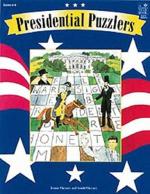|
This section contains 2,883 words (approx. 10 pages at 300 words per page) |

|
THE AMERICAN FOUNDERS established the doctrine of separation of powers with the idea that the Congress and the president would share power and have clearly defined roles. According to the Constitution, Congress's job is to make the laws and the president's is to make sure they are carried out. The Constitution is silent, however, on which governmental branch should suggest or draft prospective legislation. Thus, while the president has no power to pass a law, he is perfectly free to suggest one and ask that the legislators pass it. But most early presidents were not very active in the legislative process. During the nation's first century, the Congress drafted, as well as passed, nearly all legislation. As a result, in the nineteenth century, Congress largely dominated the government and overshadowed the president, particularly in the area of domestic...
|
This section contains 2,883 words (approx. 10 pages at 300 words per page) |

|




